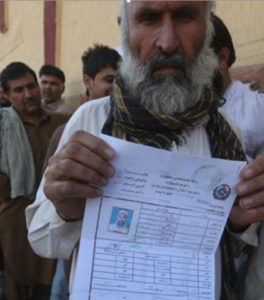Afghans in Pakistan win rights
 Pakistan has been lauded by the international humanitarian sector for allowing hundreds of thousands of Afghan refugees in the country as legal refugees to open bank accounts.
Pakistan has been lauded by the international humanitarian sector for allowing hundreds of thousands of Afghan refugees in the country as legal refugees to open bank accounts.
The move will enable Afghans to formally participate in the national economy.
The country hosts more than 1.4 million registered Afghan refugees, making Pakistan one of the largest refugee-hosting nations in the world, according to the UNHCR.
The displaced families have fled decades of conflict, persecution and economic hardship in Afghanistan.
“I have issued instructions today that Afghan refugees who are registered can open bank accounts and from now onwards they can participate in the formal economy of the country,” Prime Minister Imran Khan tweeted recently.
“This should have been done a long time ago,” he said.
Local laws prevent refugees from conducting transactions through Pakistani banks, forcing Afghans to rely on informal channels and local partners to conduct business and trade-related activities to feed their families.
UNHCR chief Filippo Grandi welcomed the announcement.
“I commend Prime Minister Imran Khan, the government and the people of Pakistan for taking this important step in support of Afghan refugees – a forward-looking, generous gesture of solidarity of global significance,” Mr Grandi said.
The refugee agency noted that opening of bank accounts will allow refugees’ extended family members, living abroad, to send remittances through formal banking channels, which will help increase the foreign exchange reserve in Pakistan.
UNHCR has been in talks with Pakistani officials to seek banking facilities for the displaced Afghan community over recent years.
Discussions are continuing with the Pakistani government for permission for Afghan refugees to obtain a driver’s license.
Pakistan also hosts nearly a million undocumented Afghans, who are currently undergoing the documentation process. They are, however, not entitled to the banking sector because they are considered illegal economic migrants.
Last year, Prime Minister Khan promised his government would try to grant citizenship to Afghans who were born or grew up in refugee camps in Pakistan.
It is not clear whether that will happen because it triggered criticism from some opposition political parties.
Khan has taken steps in recent days to improve Pakistan’s mistrusted and suspicion-marred relations with Afghanistan.
Mutual political tensions have led to indefinite and abrupt border closures in recent years, leading to a significant decline in trade between Pakistan and Afghanistan.
Islamabad is also unilaterally constructing a robust fence along a nearly 2,600-kilometer traditionally open and porous Afghan border to try to stop terrorist infiltration in either direction.
Pakistan also plans to soon introduce relaxed and better facilities at its diplomatic missions in Afghanistan to facilitate thousands of Afghan visa seekers who gather daily outside the Pakistani embassy and consulates.
Pakistani diplomatic missions issue almost 4,000 visas daily to Afghans, including women and children, enabling them to see their relatives, seek medical treatment, education and undertake business activities in Pakistan.
Pakistani missions in Afghanistan issued nearly 750,000 visas in 2018.
Laurie Nowell
AMES Australia Senior Journalist












